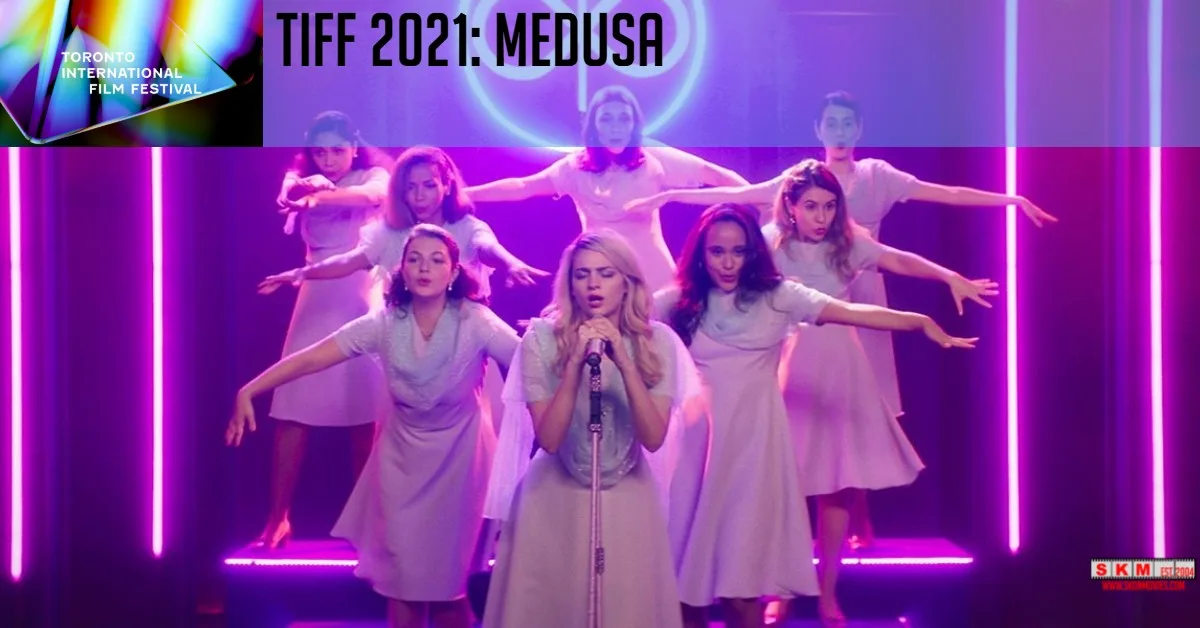Medusa – TIFF21
Female members of an evangelist Christian church violently try to convert other women to their ways in Medusa. Mari (Mariana Oliveira) and her best friend Michele (Lara Tremouroux) are members of an evangelist Christian temple in Brazil, who sing as part of “Treasures of the Lord” choir, while at night don white masks and stalk sinful women, for the purpose of converting them to their modest Christian ways. However, after Mari gets a nursing job caring for comatose patients, she begins to second-guess the church’s teachings and begins to develop some unpure thoughts.
Medusa is a darkly comic thriller from Brazillian writer-director Anita Rocha da Silveira, with a plot that is influenced by a rise of conservative Christian groups in the country. The Christian temple at the centre of this film teaches its female members to accept Christ as their saviour and to develop themselves into modest and pretty housewives. However, the protagonist Mari slowly starts to rebel against these misogynist teachings after she receives a jarring facial scar during one of her clique’s nightly attacks, causing her to rethink the church’s shallow view of femininity.
Medusa is an incredibly stylized film with visual inspiration from Dario Argento’s Suspiria. The plot of the film also reminded me of 2018’s Assassination Nation, with its mix of dark comedy and thriller elements, while also providing some female-centric social commentary. Probably the biggest criticism I have about Medusa is that the film is a bit too long with a running time that exceeds two hours, but the film still offers some poignant criticism of the misogynistic teachings of conservative evangelist Christianity.

